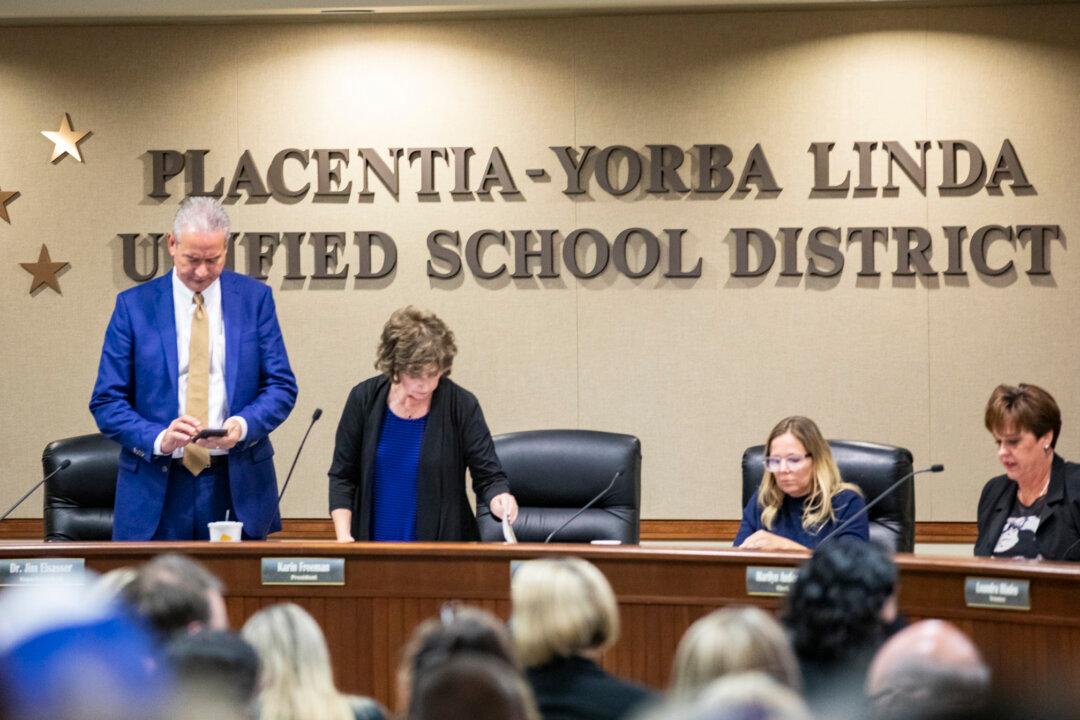The Placentia-Yorba Linda Unified Education Board will soon vote on a policy that requires board approval before the district can pilot a new book in classrooms after several controversial books made their way into lessons.
Under the district’s current policy, teachers submit books to the district’s Literary Review Committee—made up of parents, teachers, and community members—for review as a pilot for a semester.





